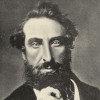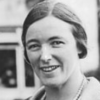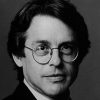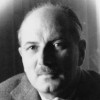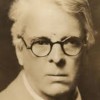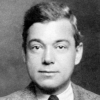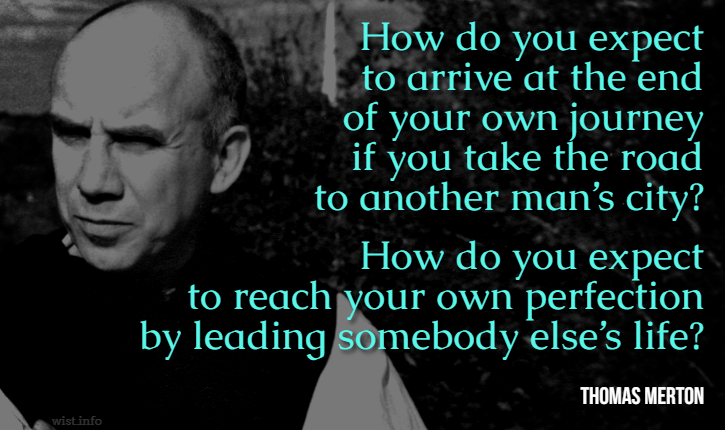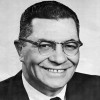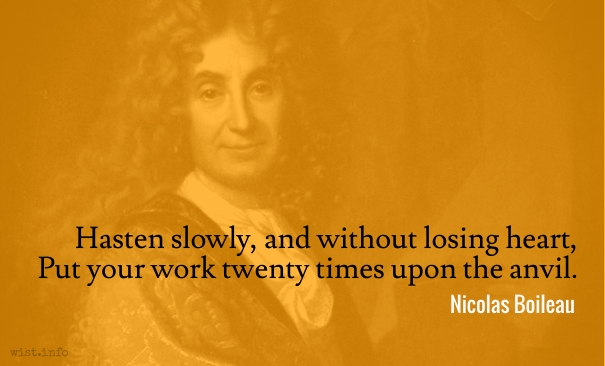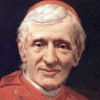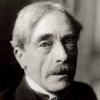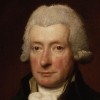Never get a reputation for a small perfection, if you are trying for fame in a loftier area; the world can only judge by generals, and it sees that those who pay considerable attention to minutiæ, seldom have their minds occupied with great things. There are, it is true, exceptions; but to exceptions the world does not attend.
Edward George Bulwer-Lytton (1803-1873) English novelist and politician
The Disowned, ch. 2 [Talbot] (1828)
(Source)
See La Rochefoucauld.
Quotations about:
perfection
Note not all quotations have been tagged, so Search may find additional quotes on this topic.
It is erroneous to tie down individual genius to ideal models. Each person should do that, not which is best in itself, even supposing this could be known, but that which he can do best, which he will find out if left to himself. Spenser could not have written Paradise Lost, nor Milton the Faerie Queene. Those who aim at faultless regularity will only produce mediocrity, and no one ever approaches perfection except by stealth, and unknown to themselves.
William Hazlitt (1778-1830) English writer
“Thoughts on Taste,” Edinburgh Magazine (1819-07)
(Source)
Still, what I want in my life
is to be willing
to be dazzled —
to cast aside the weight of facts
and maybe even
to float a little
above this difficult world.
The writer who considers only the taste of his own time is concerned more with his personal fame than with that of his books: we should always aim at perfection, and then we shall receive from posterity that justice which our contemporaries sometimes deny us.
[Celui qui n’a égard en écrivant qu’au goût de son siècle songe plus à sa personne qu’à ses écrits: il faut toujours tendre à la perfection, et alors cette justice qui nous est quelquefois refusée par nos contemporains, la postérité sait nous la rendre.]
Jean de La Bruyère (1645-1696) French essayist, moralist
The Characters [Les Caractères], ch. 1 “Of Works of the Mind [Des Ouvrages de l’Esprit],” § 67 (1.67) (1688) [tr. Stewart (1970)]
(Source)
(Source (French)). Alternate translations:
He who regards nothing more in his Works than the taste of the Age, has a greater value for his Person than his Writings: He should always aim at Perfection; and tho his Contemporaries refuse him Justice, Posterity will give it him.
[Bullord ed. (1696)]
He who regards nothing more in his Works than the Taste of his own Age, Considers his Person more than his Writings: He should always aim at Perfection, and tho his Contemporaries refuse him Justice, Posterity will give it him.
[Curll ed. (1713)]
He who regards nothing more in his Works than the Taste of the Age, has a greater value for his Person than his Writings: He should always aim at Perfection; and though his Cotempararies refuse him Justice, he will be better used by Posterity.
[Browne ed. (1752)]
He who only writes to suit the taste of the age, considers himself more than his writings. We should always aim at perfection, and then posterity will do us that justice which sometimes our contemporaries refuse.
[tr. Van Laun (1885)]
There is a legend about a bird that sings just once in its life, more sweetly than any other creature on the face of the earth. From the moment it leaves the nest it searches for a thorn tree and does not rest until it has found one. Then, singing among the savage branches, it impales itself upon the longest, sharpest spine. Dying, it rises above its own agony to out-carol the lark and the nightingale. One superlative song, existence the price. But the whole world stills to listen, and God in His heaven smiles. For the best is only bought at the cost of the great pain. … Or so says the legend.
We want perfection in other people, and yet we do not put right our own failings. We want to see others firmly corrected, but we refuse correction ourselves. We take offence when permission is given to others, but we do not want our own requests refused. We want rules to check the activities of others, but we are indignant at restrictions on ourselves.
[Libenter videmus alios perfectos, sed tamen proprios non emendamus defectus. Volumus quod alii districte corrigantur, et nos ipsi corrigi nolumus, aut negari quod petimus. Alios restringi per statuta volumus, et ipsi nullatenus patimur amplius cohiberi.]
Thomas à Kempis (c. 1380-1471) German-Dutch priest, author
The Imitation of Christ [De Imitatione Christi], Book 1, ch. 16, v. 2ff (1.16.2-3) (c. 1418-27) [tr. Knott (1962)]
(Source)
(Source (Latin)). Alternate translations:
We would gladly have others perfect, but will not amend our own defaults. We would that others should be straitly corrected for their offences, but we will not be corrected. It misliketh us that others have liberty, but we will not be denied of that we ask. We would also that others should be restrained according to the statutes, but we in nowise will be restrained.
[tr. Whitford/Raynal (1530/1871)]
We would gladly have others perfect, yet we will not amend our own faults. We desire others to be strictly corrected for their offenses, yet we will not be corrected. We dislike it that others have liberty, yet we will not be denied what we ask. We desire that others should be restrained according to the laws, yet we will in no way be restrained.
[tr. Whitford/Gardiner (1530/1955)]
It is injustice to expect that in another which thou hast not in thy self, to looke for perfection in others, and yet not to amend imperfections in our selves. We will have others severely punisht, and will not amend our selves; the large liberty of others disliketh us, and yet we will not have our desires deni'd us, we will have rigorous Lawes imposed upon others, but in no sort will we our selves be restrained.
[tr. Page (1639), 1.16.8-9]
And, indeed, nothing is more common, than to express exceeding Zeal in amending our Neighbours, and mighty Indignation against Their Vices or Imperfections, while at the same time we neglect the beginning at Home, and either quite overlook, or seem highly contented with our own. We set up for Reformers, declaim at the Wickendess of the Age, and are all for suppressing and punishing it by vigorous Laws; and yet are unwilling that any Check or Restraint should be put upon our own Freedoms.
[tr. Stanhope (1696; 1706 ed.)]
But we require perfection in the rest of mankind, and take no care to rectify the disorders of our own heart; we desire that the faults of others should be severely punished, and refuse the gentlest correction ourselves; we are offended at their licentiousness, and yet cannot bear the least opposition to our own immoderate desires. We would subject all to the control of rigorous statute and penal laws, but will not suffer any restraint upon our own actions.
[tr. Payne (1803), 1.16.3]
We would willingly have others perfect, and yet we amend not our own faults. We will have others severely corrected, and will not be corrected ourselves. The large liberty of others displeaseth us; and yet we will not have our own desires denied us. We will have others kept under by strict laws; but in no sort will ourselves be restrained.
[ed. Parker (1841)]
We willingly require perfection in the rest of mankind, and yet do not rectify the disorders of our own hearts. We desire that the faults of others should be severely punished, and refuse the gentlest correction ourselves. We are offended at their licentiousness, and yet cannot bear the least denial of our own immoderate desires. We would subject all to the control of rigorous statutes, but suffer no restraint upon our own action.
[tr. Dibdin (1851)]
We would fain have others perfect, and yet we amend not our own defects. We would have others strictly corrected, but will not be corrected ourselves. The large liberty of others displeases us, and yet we would not be denied anything we ask for. We wish others to be bound down by laws, and we suffer ourselves to be in no sort restrained.
[ed. Bagster (1860)]
We are ready to see others made perfect, and yet we do not amend our own shortcomings. We will that others be straitly corrected, but we will not be corrected ourselves. The freedom of others displeaseth us, but we are dissatisfied that our own wishes shall be denied us. We desire rules to be made restraining others, but by no means will we suffer ourselves to be restrained.
[tr. Benham (1874)]
We are desirous to have others perfect, and yet we amend not our own faults. We will have others severely corrected, and will not be corrected ourselves. The large liberty of others displeaseth us; and yet we will not have our own desires denied us. We will have others kept under by strict laws; but in no sort will we ourselves be restrained.
[tr. Anon. (1901)]
We want them to be perfect, yet we do not correct our own faults. We wish them to be severely corrected, yet we will not correct ourselves. Their great liberty displeases us, yet we would not be denied what we ask. We would have them bound by laws, yet we will allow ourselves to be restrained in nothing.
[tr. Croft/Bolton (1940)]
We would readily have others perfect and yet not amend our own defects. We want others rigidly corrected and are unwilling to be corrected ourselves. The wide freedom of others displeases us, and yet we would not be denied whatever we ask. We wish others to be bound by rules, and will ourselves in no way be held in.
[tr. Daplyn (1952)]
For we require other people to be perfect, but do not correct our own faults. We wish to see others severely reprimanded; yet we are unwilling to be corrected ourselves. We wish to restrict the liberty of others, but are not willing to be denied anything ourselves. We wish others to be bound by rules, yet we will not let ourselves be bound.
[tr. Sherley-Price (1952)]
We like to have everybody around us quite perfect, but our own faults -- we never seem to correct them. Tom, Dick and Harry must be strictly called to order, but we aren't fond of being called to order ourselves. It is always the other man that has too much rope given him -- our wishes must not be thwarted; rules for everybody else, but our own liberties must not be abridged for a moment.
[tr. Knox-Oakley (1959), 1.16.3]
Though quick to expect perfection in others, we take little care to correct our own shortcomings. We wouidl have others strictly corrected, but not ourselves. The wide freedom of others displeases us, yet we wish to be denied nothing that we ourselves desire. We would have others under the restraint of the rule while unwilling ourselves to be under any sort of restraint.
[tr. Rooney (1979)]
We would willingly have others be perfect, and yet we fail to correct our own faults. We want others to be strictly corrected, and yet we are unwilling to be corrected ourselves. Other peoples' far-ranging freedom annoys us, and yet we insist on having our own way. We wish others to be tied down by rules, and yet we will not allow ourselves to be held in check in any way at all.
[tr. Creasy (1989)]
It was one of those perfect autumn days so common in stories and so rare in the real world.
Patrick Rothfuss (b. 1973) American author
The Name of the Wind, ch. 2 “A Beautiful Day” (2007)
(Source)
“Master,” said I, “this woe —
Will it grow less, or still more fiercely burning
With the Great Sentence, or remain just so?”
“Go to,” said he, “hast thou forgot they learning,
Which hath it: The more perfect, the more keen,
Whether for pleasure’s or for pain’s discerning?
Though true perfection never can be seen
In these damned souls, they’ll be more near complete
After the Judgement than they yet have been.”[Per ch’io dissi: “Maestro, esti tormenti
crescerann’ei dopo la gran sentenza,
o fier minori, o saran sì cocenti?”.
Ed elli a me: “Ritorna a tua scïenza,
che vuol, quanto la cosa è più perfetta,
più senta il bene, e così la doglienza.
Tutto che questa gente maladetta
in vera perfezion già mai non vada,
di là più che di qua essere aspetta”.]Dante Alighieri (1265-1321) Italian poet
The Divine Comedy [Divina Commedia], Book 1 “Inferno,” Canto 6, l. 103ff (6.103-111) (1309) [tr. Sayers (1949)]
(Source)
Virgil informs Dante that, according to the "science" of Aristotle and Thomas Aquinas, the souls of the dead, reunited with their bodies at the Last Judgment, will be more "perfect," and thus will more perfectly feel the joy of Heaven, or the torments of Hell.
(Source (Italian)). Alternate translations:
Master, I said; When the grand Sentence 's pass'd,
Will an increase of punishment ensue,
Or will't continue thus, or less become.
Return to your Philosophy, he said,
By which you're taught, that the more perfect are
More sensible of good, as well as ill.
And this unhappy Crew expect not e'er
That they at true perfection shall arrive;
But that their Suff'rings will be more severe
After the dreadful Sentence than before.
[tr. Rogers (1782), l. 98ff]
Then I, "Shall equal plagues the damn'd await;
Shall Hell increase her torments, or abate,
When the last change their final sentence brings?"
"Let Science solve the doubt," the Bard rejoin'd,
"The body married to th' immortal mind,
Or higher transport feels, or fiercer woe:
Then th' ignoble brethren of the sty,
When the last clarion shakes the faulted sky,
Shall feel their pains sublim'd, their tortures grow."
[tr. Boyd (1802), st. 9-10]
For thus I question’d: “Shall these tortures, Sir!
When the great sentence passes, be increas’d,
Or mitigated, or as now severe?”
He then: “Consult thy knowledge; that decides
That as each thing to more perfection grows,
It feels more sensibly both good and pain.
Though ne’er to true perfection may arrive
This race accurs’d, yet nearer then than now
They shall approach it.”
[tr. Cary (1814)]
For thus I asked him: "Shall these torments rage,
The judgment past, with fury more intense,
Or such as now, or of their heat assuage?"
Who answered: "Get thee to thy wisdom, whence
'Tis taught, the creature to perfection nigher
Of good and eke of ill hath keener sense.
Albeit this cursed race may ne'er aspire
The true perfection of their kind to feel,
Yet lower scale expect they not, but higher."
[tr. Dayman (1843)]
Wherefore I said: "Master, shall these torments increase after the great Sentence, or grow less, or remain as burning?"
And he to me: "Return to they science, which has it, that the more a thing is perfect, the more it feels pleasure and likewise pain.
Though these accursed people never attain to true perfection, yet they [look to] be nearer it after than before." [tr. Carlyle (1849)]
It was the reason why I said, "Master!
When the grand sentence is past, is the pain
Increased or lessened, or do these remain?"
And he said to me, "What doth thy science teach?
Whatever thing is perfect's more endued
To feel the evil, to perceive the good:
To perfect misery will not they attain,
The accursed race who suffer in this sphere,
But nearer then than now they will appear."
[tr. Bannerman (1850)]
And then I said -- "These torments, master, say,
Will they increase after the awful doom,
Or become less? Will they be sharp as now?"
Then he to me -- "Unto thy science turn,
Which teaches, the more perfect be the thing,
It knows the good, it feels the suffering more.
Although this multitude accurs'd may not
Unto the true perfection ever come,
After, rather than now, they look for it."
[tr. Johnston (1867)]
Wherefore I said: "Master, these torments here,
Will they increase after the mighty sentence,
Or lesser be, or will they be as burning?"
And he to me: "Return unto thy science,
Which wills, that as the thing more perfect is,
The more it feels of pleasure and of pain.
Albeit that this people maledict
To true perfection never can attain,
Hereafter more than now they look to be."
[tr. Longfellow (1867)]
Wherefore I said: "Master, these torments, will they increase after the great sentence, or become less, or be as scorching?" And he to me: "Return to thy science, which holds, in proportion as the thing is more perfect, it is more conscious of the good, and so of suffering. Albeit this accursed folk may never go on to true perfection, it expects to be more on the further than on the hither side."
[tr. Butler (1885)]
Wherefore I said; "O master, I would know
Whether these torments after the great day
Will lessen, keep as now, or fiercer grow?"
And he to me: "Thy science here essay,
Which wills that more a thing is perfect nursed,
The more it feels both good and evil sway.
And though in truth this people, all accursed,
With true perfection never can be dight,
Then, more than now, it looks to feel the worst."
[tr. Minchin (1885)]
Wherefore I said, “Master, these torments will they increase after the great sentence, or will they become less, or will they be just as burning?” And he to me, “Return to thy science, which declares that the more perfect a thing is the more it feels the good, and so the pain. Though this accursed people never can attain to true perfection, it expects thereafter to be more than now.”
[tr. Norton (1892)]
Wherefore I said: "Master, these tortures, will they increase when the great doom is spoken, or will they lessen, or continue as galling as before?" And he made answer to me: "Go back upon the science thou hast read, which would have us believe that the more a thing is perfect, the more it feeleth pleasure, and likewise pain. Though these cursed souls may never come to true perfection, yet do they hope thereafter to attain it more than now."
[tr. Sullivan (1893)]
And thereupon I said: "Master, these torments,
Will they increase after the last great sentence,
Or lesser grow, or will they be as poignant?"
And he to me : "Return unto thy science,
Which hath it that, the more a thing is perfect,
More hath it sense of good, and so of dolour.
So, notwithstanding that this folk accursed
Never advances unto true perfection,
Yet more on that side than on this it looks for."
[tr. Griffith (1908)]
I said therefore: "Master, will these torments increase after the great judgment, or become less, or continue as fierce as now?" And he answered me, "Go back to thy science, which requires that in the measure of a creature's perfection it feels more both of pleasure and of pain. Although these people who are accursed never come to true perfection, they look to be completer then than now."
[tr. Sinclair (1939)]
Wherefore I said: "Master, these pangs of woe --
Shall they be increased after the great Assize
Or stay scorching as now, or lesser grow?"
And he: "Turn to thy science and be wise.
The more a thing perfected is, the more
it feels bliss, and in pain the sharper sighs.
Although the state of these accurst at core
Never indeed in true perfection ends,
They look then to be nearer than before."
[tr. Binyon (1943)]
"Master," I said, "when the great clarion fades
into the voice of thundering Omniscience,
what of these agonies? Will they be the same,
or more, or less, after the final sentence?"
And he to me: "Look to your science again
where it is written: the more a thing is perfect
the more it feels of pleasure and of pain.
As for these souls, though they can never soar
to true perfection, still in the new time
they will be nearer than they were before.
[tr. Ciardi (1954), l. 99ff]
Wherefore I said, "Master, these torments, will they increase after the great Judgment, or will they grow less, or will they be just as burning as now?"
And he to me, "Return to your science, which has it that the more a thing is perfect, the more it feels the good, and so the pain. Although this accursed folk can never come to true perfection, yet they look to be nearer it then than now."
[tr. Singleton (1970)]
I said, "Master, will these torments be increased,
or lessened, on the final Judgment Day,
or will the pain be just the same as now?"
And he: "Remember your philosophy:
the closer a thing comes to its perfection
more keen will be its pleasure or its pain.
Although this cursèd race of punished souls
shall never know the joy of true perfection,
more perfect will their pain be then than now."
[tr. Musa (1971)]
At which I said: "And after the great sentence --
o master -- will these torments grow, or else
be less, or will they be just as intense?"
And he to me: "Remember now your science,
which said that when a thing has more perfection,
so much the great is its pain or pleasure.
Though these accursed sinners never shall
attain the true perfection, yet they can
expect to be more perfect then than now."
[tr. Mandelbaum (1980)]
So I said to him: "Master, will these torments
Grow greater still after the great sentence,
Will they be less, or burn as they burn now?"
His answer to me was: "Go back to your science,
Which teaches that the more perfect a thing is,
The more it feels pleasure, and pain as well.
Although these people, because they are accursed,
Will never reach the point of true perfection,
They expect to approach it more nearly afterwards."
[tr. Sisson (1981)]
"Master, these torments -- tell me, will they increase
After the Judgment, or lessen, or merely endure,
Burning as much as now?" He said, "In this,
Go back to your science, which teaches that the more
A creature is perfect, the more it perceives the good --
and likewise, pain. The accursed people here
Can never come to true perfection; instead
They can expect to come closer then than now."
[tr. Pinsky (1994), l. 94ff]
So I said: "Master, these torments, will they grow after the great Judgment, or will they be less, or equally hot?"
And he to me: "Return to your philosophy, which teaches that the more perfect a thing is, the more it feels what is good, and the same for pain.
Even though these cursed people will never enter into true perfection, on that side they can expect to have more being than on this."
[tr. Durling (1996)]
Of this I asked: "Master, will these torments increase, after the great judgement, or lessen, or stay as fierce?" And he to me: "Remember your science, that says, that the more perfect a thing is, the more it feels pleasure and pain. Though these accursed ones will never achieve true perfection, they will be nearer to it after, than before."
[tr. Kline (2002)]
Concerning which, "These torments, sir," I said,
"when judgement has been finally proclaimed --
will these increase or simmer just the same?"
"Return," he said, "to your first principles:
when anything (these state) becomes more perfect,
then all the more it feels both good and pain.
Albeit these accursed men will not
achieve perfection full and true, they still,
beyond that Day, will come to sharper life."
[tr. Kirkpatrick (2006)]
"Master," I asked, "after the great Judgment
will these torments be greater, less,
or will they stay as harsh as they are now?"
And he replied: "Return to your science,
which has it that, in measure of a thing's perfection,
it feels both more of pleasure and of pain.
Although these accursèd people
will never come to true perfection,
they will be nearer it than they are now."
[tr. Hollander/Hollander (2007)]
And I asked: "Master these punishments,
Will they grow, after the great and Final Judgment,
Or lesson, or burn exactly as we've seen them?"
He answered: Go back to the rules of science, which you know
Declare perfection will grow more perfect with time,
And as it is in Heaven, so too below.
Although these wicked souls will never climb
To Heaven, I think they may come closer, perhaps,
Than they are now, in the state and place we find them."
[tr. Raffel (2010)]
Regarding that subject, I asked, "After the Final Judgment,
Will the torture increase, become somewhat less,
Or remain at the same level of intensity?"
He said, "Go back to your science. Remember
Aristotle and Aquinas. The closer a creature is to perfection,
The more it feels, both pleasure and pain.
This ruined crowd can't achieve authentic perfection
But they can expect to get closer to it than they are.
Which means more pain for the truly damned.
[tr. Bang (2012)]
"After the end,
What starts?" I asked. "Will all those who have earned
Their place down here feel less pain from the Day
Of Judgement on, or just the same, or more?"
And he to me: "What does your science say?
The more a thing's more perfect than before
The more it takes delight or feel despair?
Although these damned will never know a true
Perfection, they;ll be closer to it there,
Beyond that Day. So: much more than they do
Must be the answer to your question."
[tr. James (2013)]
Hitherto I have been under the guidance of that portion of reason which He has thought proper to deal out to me. I have followed it faithfully in all important cases, to such a degree at least as leaves me without uneasiness; and if on minor occasions I have erred from its dictates, I have trust in Him who made us what we are, and knows it was not His plan to make us always unerring.
Thomas Jefferson (1743-1826) American political philosopher, polymath, statesman, US President (1801-09)
Letter to Miles King (26 Sep 1814)
(Source)
Frodo drew the Ring out of his pocket again and looked at it. It now appeared plain and smooth, without mark or device that he could see. The gold looked very fair and pure, and Frodo thought how rich and beautiful was its colour, how perfect was its roundness. It was an admirable thing and altogether precious.
J.R.R. Tolkien (1892-1973) English writer, fabulist, philologist, academic [John Ronald Reuel Tolkien]
The Lord of the Rings, Vol. 1: The Fellowship of the Ring, Book 1, ch. 2 “The Shadow of the Past” (1954)
(Source)
We are never going to have someone who’s perfect [for President]. We have to change our system so that it can operate with flawed people.
If the road to social transformation can be paved only by saints who never make mistakes, the road will never be built.
Anthony Kapel "Van" Jones (b. 1968) American news commentator, author, lawyer
In Thomas L. Friedman, “The Green-Collar Solution,” New York Times (17 Oct 2007)
(Source)
What is the new loyalty? It is, above all, conformity. It is the uncritical and unquestioning acceptance of America as it is — the political institutions, the social relationships, the economic practices. It rejects inquiry into the race question or socialized medicine, or public housing, or into the wisdom or validity of our foreign policy. It regards as particularly heinous any challenge to what is called “the system of private enterprise,” identifying that system with Americanism. It abandons evolution, repudiates the once popular concept of progress, and regards America as a finished product, perfect and complete.
When I was writing a column for Family Circle, I had planned one in praise of shabbiness. A house that does not have one worn, comfy chair in it is soulless. It all comes back to the fact that we are not asked to be perfect, only human.
May Sarton (1912-1995) Belgian-American poet, novelist, memoirist [pen name of Eleanore Marie Sarton]
Journal of a Solitude (1973)
(Source)
Perhaps it is not true to speak of God as a judge at all, or of his judgements. There does not seem to be really any evidence that His worlds are places of trial but rather schools, place of training, or that He is a judge but rather a Teacher, a Trainer, not in the imperfect sense in which men are teachers, but in the sense of His contriving and adapting His whole universe for one purpose of training every intelligent being to be perfect.
Florence Nightingale (1820-1910) English social reformer, statistician, founder of modern nursing
“Note on God and judgment”
(Source)
In Lynn McDonald, Ed., Florence Nightingale's Theology: Essays, Letters, and Journal Notes (2002), noted as "ADD MSS 45783 ff65-67".
Nearly all creators of Utopia have resembled the man who has toothache, and therefore thinks happiness consists in not having toothache. They wanted to produce a perfect society by an endless continuation of something that had only been valuable because it was temporary. The wider course would be to say that there are certain lines along which humanity must move, the grand strategy is mapped out, but detailed prophecy is not our business. Whoever tries to imagine perfection simply reveals his own emptiness.
George Orwell (1903-1950) English writer [pseud. of Eric Arthur Blair]
“Can Socialists Be Happy?” Tribune (1943-12-20) [as John Freeman]
(Source)
We can’t start over again, and it wouldn’t “be perfect” if we could. We can only continue.
Theodore Isaac Rubin (1923-2019) American psychiatrist and author
Compassion and Self Hate: An Alternative to Despair, Part 2 (1975)
(Source)
Health is relative. There is no such thing as an absolute state of health or sickness. Everyone’s physical, mental, and emotional condition is a combination of both.
Theodore Isaac Rubin (1923-2019) American psychiatrist and author
The Angry Book, “Let Freedom Ring” (1970)
(Source)
I will leave it for the present, as this letter is already pretty long. Such is my desire, my anxiety for your perfection, that I never think I have said enough, though you may possibly think I have said too much; and though, in truth, if your own good sense is not sufficient to direct you, in many of these plain points, all that I or anybody else can say will be insufficient.
Lord Chesterfield (1694-1773) English statesman, wit [Philip Dormer Stanhope]
Letter to his son, #168 (18 Nov 1748)
(Source)
Chesterfield repeats the sentiment in a later letter, #194 (22 Sep 1749):
This letter is a very long, and so possibly a very tedious one; but my anxiety for your perfection is so great, and particularly at this critical and decisive period of your life, that I am only afraid of omitting, but never of repeating or dwelling too long upon anything that I think may be of the least use to you.
When there was room on the ledge outside of the pot s and boxes for a cat, the cat was there — in sunny weather — stretched at full length, asleep and blissful, with her furry belly to the sun and a paw curved over her nose. Then the house was complete, and its contentment and peace were made manifest to the world by this symbol, whose testimony is infallible. A home without a cat — and a well-fed, well-petted, and properly revered cat — may be a perfect home, perhaps, but how can it prove title?
Mark Twain (1835-1910) American writer [pseud. of Samuel Clemens]
Pudd’nhead Wilson, ch. 1 (1894)
(Source)
I have now but one anxiety left, which is concerning you. I would have you be, what I know nobody is, perfect. As that is impossible, I would have you as near perfection as possible. I know nobody in a fairer way toward it than yourself, if you please. Never were so much pains taken for anybody’s education as for yours; and never had anybody those opportunities of knowledge and improvement which you have had, and still have. I hope, I wish, I doubt, and I fear alternately. This only I am sure of, that you will prove either the greatest pain, or the greatest pleasure of, Yours Always Truly.
Lord Chesterfield (1694-1773) English statesman, wit [Philip Dormer Stanhope]
Letter to his son, #141 (16 Feb 1748)
(Source)
For even the humblest person, a day spent without the sight or sound of beauty, the contemplation of mystery, or the search for truth and perfection is a poverty-stricken day; and a succession of such days is fatal to human life.
Lewis Mumford (1895-1990) American writer, philosopher, historian, architect
The Condition of Man (1944)
(Source)
The intellect of man is forced to choose
Perfection of the life or of the work.
The critic who at forty believes the same things he believed at twenty is either a genius or a jackass.
George Jean Nathan (1892-1958) American editor and critic
The World in Falseface, “Art & Criticism,” #62 (1923)
(Source)
To be a writer is to accept failure as a profession — which of us is Dante or Shakespeare? — and could they return, wouldn’t they fall at once to revising, knowing they could make the work better? In our own dwarfed way, we are trying for something like perfection, knowing it is unachievable (except of course that trying and failing is a better way of living than not trying).
John Ciardi (1916-1986) American poet, writer, critic
In Vince Clemente, “‘A Man Is What He Does With His Attention’: A Conversation with John Ciardi,” Poesis, Vol. 7 #2 (1986)
(Source)
I must respekt thoze, I suppose, who never make enny blunders, but I don’t luv them.
[I must respect those, I suppose, who never make any blunders, but I don’t love them.]
Josh Billings (1818-1885) American humorist, aphorist [pseud. of Henry Wheeler Shaw]
Everybody’s Friend, Or; Josh Billing’s Encyclopedia and Proverbial Philosophy of Wit and Humor, “Affurisms” (1874)
(Source)
A work of art has an author and yet, when it is perfect, it has something which is essentially anonymous about it.
Simone Weil (1909-1943) French philosopher
Gravity and Grace [La Pesanteur et la Grâce], “Beauty” (1947) [ed. Thibon] [tr. Crawford/von der Ruhr (1952)]
(Source)
If everyone were clothed with integrity,
If every heart were just, frank, kindly,
The other virtues would be well-nigh useless,
Since their chief purpose is to make us bear with patience
The injustice of our fellows.Si de probité tout était revêtu,
Si tous les cœurs était francs, justes et dociles,
La plupart des vertus nous seraient inutiles,
Puisqu’on en met l’usage à pouvoir sans ennui
Supporter dans nos droits l’injustice d’autrui.Molière (1622-1673) French playwright, actor [stage name for Jean-Baptiste Poquelin]
Le Misanthrope, Act 5, sc. 1, l. 1564 (1666) [tr. Wormeley (1894)]
(Source)
Original French.
Alt. trans. [Page (1913)]If everything were clothed in probity,
If all men's hearts were open, just, gentle,
Most of our virtues would be wholly useless,
Since we employ them now, in cheerfully
Enduring wrong, with right on our side.
The people I respect most behave as if they were immortal and as if society was eternal. Both assumptions are false: both of them must be accepted as true if we are to go on eating and working and loving, and are to keep open a few breathing-holes for the human spirit. No millennium seems likely to descend upon humanity; no better and stronger League of Nations will be instituted; no form of Christianity and no alternative to Christianity will bring peace to the world or integrity to the individual; no “change of heart” will occur. And yet we need not despair, indeed, we cannot despair; the evidence of history shows us that men have always insisted on behaving creatively under the shadow of the sword; that they have done their artistic and scientific and domestic stuff for the sake of doing it, and that we had better follow their example under the shadow of the aeroplanes.
E. M. Forster (1879-1970) English novelist, essayist, critic, librettist [Edward Morgan Forster]
“What I Believe,” The Nation (16 Jul 1938)
(Source)
How do you expect to arrive at the end of your own journey if you take the road to another man’s city? How do you expect to reach your own perfection by leading somebody else’s life?
Thomas Merton (1915-1968) French-American religious and writer [a.k.a. Fr. M. Louis]
New Seeds of Contemplation, ch. 14 “Integrity” (1962)
(Source)
HAL9000: The 9000 series is the most reliable computer ever made. No 9000 computer has ever made a mistake or distorted information. We are all, by any practical definition of the words, foolproof and incapable of error.
We are the highest achievement reached so far by the great constructors of evolution. We are their “latest” but certainly not their last word. The scientist must not regard anything as absolute, not even the laws of pure reason. He must remain aware of the great fact, discovered by Heraclitus, that nothing whatever really remains the same even for one moment, but that everything is perpetually changing. To regard man, the most ephemeral and rapidly evolving of all species, as the final and unsurpassable achievement of creation, especially at his present-day particularly dangerous and disagreeable stage of development, is certainly the most arrogant and dangerous of all untenable doctrines.
Konrad Lorenz (1903-1989) Austrian zoologist, ethologist, ornithologist
On Aggression, ch. 12 “On the Virtue of Scientific Humility” (1963)
(Source)
You know, here in America we’re loyal to our flaws. It’s like, if we change even our flaws there’s something wrong.
William "Bill" Maher (b. 1956) American comedian, political commentator, critic, television host.
“Bill Maher, Incorrect American Patriot,” Interview with Sharon Waxman, Washington Post (8 Nov 2002)
(Source)
Hasten slowly, and without losing heart,
Put your work twenty times upon the anvil.[Hâtez-vous lentement ; et, sans perdre courage,
Vingt fois sur le métier remettez votre ouvrage.]
In a higher world it is otherwise, but here below to live is to change, and to be perfect is to have changed often.
John Henry Newman (1801-1890) English prelate, Catholic Cardinal, theologian
An Essay on the Development of Christian Doctrine, ch. 1, sec. 7 (1845)
(Source)
We so want heroes, and we want to think that someone who is good and inspirational in some ways is good and inspirational in all ways — a dubious proposition even in modern times, let along fifty, a hundred, two hundred years ago or more. Which then lets us exercise that other instinctive desire: we so want villains ….
Trust no friend without faults,
And love a maiden, but no angel.[Trau keinem Freunde sonder Mängel,
Und leib’ ein Mädchen, kienem Engel.]
Remember that, sooner or later, before it ever reaches perfection, you will have to let it go and move on and start to write the next thing. Perfection is like chasing the horizon. Keep moving.
Neil Gaiman (b. 1960) British author, screenwriter, fabulist
In “Ten Rules for Writing Fiction,” The Guardian (20 Feb 2010)
(Source)
“It is impossible to help all,” says the miser, and — helps none.
[Man kann nicht allen helfen! sagt der Engherzige und — hilft Keinem.]
Marie von Ebner-Eschenbach (1830-1916) Austrian writer
Aphorisms [Aphorismen], No. 105 (1880) [tr. Wister (1883)]
(Source)
(Source (German)). Alternate translation:
You can't be of help to everybody! say the narrow-minded, and help nobody.
[tr. Scrase/Mieder (1994)]
Strive to be patient; bear with the faults and frailties of others, for you, too, have many faults which others have to bear. If you cannot mould yourself as you would wish, how can you expect other people to be entirely to your liking?
[Stude patiens esse in tolerando aliorum defectus, et qualescumque infirmitates, quia et tu multa habes, quæ ab aliis oportet tolerari. Si non potes te talem facere qualem vis, quomodo poteris alium habere ad beneplacitum tuum?]
Thomas à Kempis (c. 1380-1471) German-Dutch priest, author
The Imitation of Christ [De Imitatione Christi], Book 1, ch. 16, v. 2 (1.16.2) (c. 1418-27) [tr. Sherley-Price (1952)]
(Source)
(Source (Latin)). Alternate translations:
Study always that thou mayest be patient in suffering of other men’s defaults, for thou hast many things in thee that others do suffer of thee: and if thou canst not make thyself to be as thou wouldst, how mayest thou then look to have another to be ordered in all things after thy will?
[tr. Whitford/Raynal (1530/1871)]
Study always to be patient in bearing other men's defects, for you have many in yourself that others suffer from you, and if you cannot make yourself be as you would, how may you then look to have another regulated in all things to suit your will?
[tr. Whitford/Gardiner (1530/1955)]
Endeavour thy selfe patiently to bear with any faults and infirmities of others, for that thou thy selfe hast many things that must be borne withall by others. If thou canst not make thy selfe such a one as thou wouldst be, how canst thou expect to have another to thy liking in all things?
[tr. Page (1639), 1.16.6-7]
Remember, that You also have many Failings of your own, by which the Patience of other People will have its turn of being exercised. And if you do (as certainly you cannot but) see this, think how unreasonable it is, to expect you should make others in all particulars, what you would have them to be; when you cannot so much as make your self, what you are sensible you ought to be.
[tr. Stanhope (1696; 1706 ed.)]
Endeavor, to be always patient of the faults and imperfections of others; for thou haft many faults and imperfections of thy own, that require a reciprocation of forbearance. If thou art not able to make thyself that which thou wishest to be, how canst thou expect to mould another in conformity to thy will?
[tr. Payne (1803), 1.16.3]
Endeavour to be patient in bearing with the defects and infirmities of others, of what sort soever they be; for that thyself also hast many [failings] which must be borne with by others. If thou canst not make thyself such an one as thou wouldest, how canst thou expect to have another in all things to thy liking?
[ed. Parker (1841)]
Endeavour to be always patient of the faults and imperfections of others, whatever they may be; for thou hast many faults and imperfection of thy own, that require forbearance from others. If thou art not able to make thyself that which thou wishest to be, how canst thou expect to mould another in conformity to thy will?
[tr. Dibdin (1851)]
Endeavour to be patient in bearing with defects and infirmities in others, of what kind soever; because thou also hast many things which others must bear with. If thou canst not make thyself such as thou wouldst, how canst thou expect to have another according to thy liking?
[ed. Bagster (1860)]
Endeavour to be patient in bearing with other men’s faults and infirmities whatsoever they be, for thou thyself also hast many things which have need to be borne with by others. If thou canst not make thine own self what thou desireth, how shalt thou be able to fashion another to thine own liking.
[tr. Benham (1874)]
Endeavour to be patient in bearing with the defects and infirmities of others, of what sort soever they be; for that thyself also hast many failings which must be borne with by others. If thou canst not make thyself such an one as thou wouldst, how canst thou expect to have another in all things to thy liking?
[tr. Anon. (1901)]
Try to bear patiently with the defects and infirmities of others, whatever they may be, because you also have many a fault which others must endure. If you cannot make yourself what you would wish to be, how can you bend others to your will?
[tr. Croft/Bolton (1940)]
Try to be patient in bearing with others’ failings and all kinds of weaknesses, for you too have many which must be put up with by others. If you cannot mould yourself exactly as you would, how can you get another to be satisfying to you?
[tr. Daplyn (1952)]
Yes, you do well to cultivate patience in putting up with the shortcomings, the various disabilities of other people; only think how much they have to put up with in you! When you make such a failure of organizing your own life, how can you expect everybody else to come up to your own standards?
[tr. Knox-Oakley (1959)]
Try to be patient in bearing with the failings and weaknesses of other people, whatever they may be. You too have many faults, which others have to endure. If you cannot make yourself the kind of person you wish, how can you expect to have someone else to your liking?
[tr. Knott (1962)]
Seek always to be tolerant of the shortcomings and failings of others. They also have much to tolerate in you. If you are unable to mould yourself as you wish, how can you expect others to conform to your liking?
[tr. Rooney (1979)]
Take pains to be patient in bearing all the faults and weaknesses of others, for you too have many flaws that others must put up with. If you cannot make yourself as you would like to be, how can you expect to have another person entirely to your liking?
[tr. Creasy (1989)]
The best authors are always the severest critics of their own works; they revise, correct, file, and polish them, till they think they have brought them to perfection.
Lord Chesterfield (1694-1773) English statesman, wit [Philip Dormer Stanhope]
Letter to his son, #253 (6 May 1751)
(Source)
Great virtues may draw attention from defects, they cannot sanctify them. A pebble surrounded by diamonds remains a common stone, and a diamond surrounded by pebbles is still a gem. No one should attempt to refute an argument by pronouncing the name of some man, unless he is willing to adopt all the ideas and beliefs of that man. It is better to give reasons and facts than names. An argument should not depend for its force upon the name of its author. Facts need no pedigree, logic has no heraldry, and the living should not awed by the mistakes of the dead.
Robert Green Ingersoll (1833-1899) American lawyer, agnostic, orator
“The Great Infidels” (1881)
(Source)
You cannot live the perfect day without doing something for someone who will never be able to repay you.
John Wooden (1910-2010) American basketball player and coach
They Call Me Coach, ch. 8, epigram (1972)
(Source)
Nothing would be done at all if a man waited until he could do something so well that no one could find fault with it.
In the eyes of those lovers of perfection, a work is never finished — a word that for them has no sense — but abandoned; and this abandonment, whether to the flames or to the public (and which is the result of weariness or an obligation to deliver) is a kind of an accident to them, like the breaking off of a reflection, which fatigue, irritation, or something similar has made worthless.
[Aux yeux de ces amateurs d’inquiétude et de perfection, un ouvrage n’est jamais achevé, – mot qui pour eux n’a aucun sens, – mais abandonné ; et cet abandon, qui le livre aux flammes ou au public (et qu’il soit l’effet de la lassitude ou de l’obligation de livrer) est une sorte d’accident, comparable à la rupture d’une réflexion, que la fatigue, le fâcheux ou quelque sensation viennent rendre nulle.]
Paul Valéry (1871-1945) French poet, critic, author, polymath
“Au sujet du ‘Cimetière marin,'” La Nouvelle Revue Française (Mar 1933)
(Source)
Often rendered as: "A poem is never finished, only abandoned."
Alt. trans.: "In the eyes of those who anxiously seek perfection, a work is never truly completed -- a word that for them has no sense -- but abandoned; and this abandonment, of the book to the fire or to the public, whether due to weariness or to a need to deliver it for publication, is a sort of accident, comparable to the letting-go of an idea that has become so tiring or annoying that one has lost all interest in it." [tr. Maggio]
In the same vein, in "Recollections," Valery wrote: "A work is never completed except by some accident such as weariness, satisfaction, the need to deliver, or death: for, in relation to who or what is making it, it can only be one stage in a series of inner transformations."
Also attributed to W. H. Auden, Oscar Wilde, and Jean Cocteau, For more discussion of the origin of this phrase, see here.
Trifles make perfection, and perfection is no trifle.
Michelangelo (1475-1564) Italian artist, architect, poet [Michelangelo di Lodovico Buonarroti Simoni]
(Attributed)
The first appearance of this attribution is in C. C. Colton, Lacon: Or, Many Things in Few Words, Vol. 1, § 168 (1820), with no citation as to where he found it (if he did not make it up himself).
Aim at perfection in everything, though in most things it is unattainable; however, they who aim at it, and persevere, will come much nearer it than those whose laziness and despondency make them give it up as unattainable.
Lord Chesterfield (1694-1773) English statesman, wit [Philip Dormer Stanhope]
Letter to his son, #226 (24 May 1750)
(Source)
It is only the very wisest and the very stupidest who never change.
[唯上知與下愚不移]
Confucius (c. 551- c. 479 BC) Chinese philosopher, sage, politician [孔夫子 (Kǒng Fūzǐ, K'ung Fu-tzu, K'ung Fu Tse), 孔子 (Kǒngzǐ, Chungni), 孔丘 (Kǒng Qiū, K'ung Ch'iu)]
The Analects [論語, 论语, Lúnyǔ], Book 17, verse 3 (17.3) (6th C. BC – 3rd C. AD) [tr. Soothill (1910)]
(Source)
Some scholars recommend reading 17.2-3 together (I don't get it), and some actually merge them into a single verse; that is noted below. (Source (Chinese)). Alternate translations:
There are only the wise of the highest class, and the stupid of the lowest class, who cannot be changed.
[tr. Legge (1861)]
Only the supremely wise and the most deeply ignorant do not alter.
[tr. Jennings (1895)]
It is only men of the highest understanding and men of the grossest dullness, who do not change.
[tr. Ku Hung-Ming (1898)]
There are two classes that never change: the supremely wise and the profoundly stupid.
[Source (1906)]
Only the wisest and the dullest never change.
[tr. Soothill (1910), Alternate 1]
Only the uppermost wise and the lowermost stupid do not change.
[tr. Soothill (1910), Alternate 2]
Only those of highest intelligence, and lowest simplicity do not shift.
[tr. Pound (1933)]
It is only the very wisest and the very stupidest who cannot change.
[tr. Waley (1938)]
Only the highest and the lowest characters don’t change.
[tr. Lin Yutang (1938)]
The only ones who do not change are sages and idiots.
[tr. Ware (1950), 17.2]
It is only the most intelligent and the most stupid who are not susceptible to change.
[tr. Lau (1979)]
Only the most intelligent and the most stupid do not change.
[tr. Dawson (1993), 17.2]
Only the wisest and the stupidest never change.
[tr. Leys (1997)]
Only the highest of the wise and the lowest of the stupid do not change.
[tr. Huang (1997), 17.2]
Only the super wisdom and the infer stupidness cannot be changed.
[tr. Cai/Yu (1998), #443]
Only the most wise (zhi) and the most stupid do not move.
[tr. Ames/Rosemont (1998)]
It is the highest wisdom and the lowest stupidity that do not change.
[tr. Brooks/Brooks (1998), 17.2b]
Those of the loftiest wisdom and those of the basest ignorance: they alone never change.
[tr. Hinton (1998)]
Only the highest among the wise and the lowest among the stupid never change.
[tr. Watson (2007)]
Only the most intelligent and the most stupid are not inclined to change.
[tr. Annping Chin (2014)]
Only superior wisdom and extreme stupidity cannot be changed.
[tr. Li (2020)]
Only the supremely wise and the most deeply ignorant do not alter.
[Source]
Only the supremely wise and the abysmally ignorant do not change.

